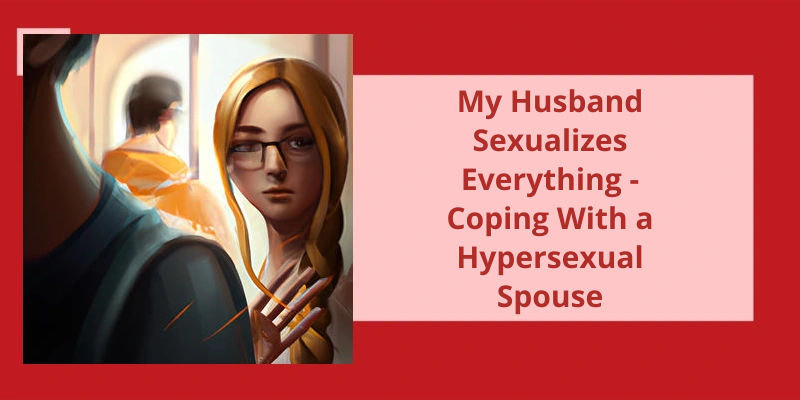When it comes to relationships, many people often wonder if a one-year relationship is considered serious. While there may not be a set definition of what constitutes a serious relationship, hitting the one-year mark is undoubtedly a significant milestone. It signals that both parties have invested considerable time and effort into the relationship, and have likely built a strong foundation for their future together. At this stage, relationship experts suggest that the most crucial element of a successful partnership is trust. Building trust takes time and effort, and by the one-year mark, both parties should have developed a deep sense of trust in each other. While there may not be any significant life-changing events that occur after a year, it’s a good sign that both partners are happy and committed to the relationship. Overall, a one-year relationship can be a genuinely meaningful and serious commitment that lays the foundation for long-term happiness and fulfillment.
What Happens After 1 Year in a Relationship?
Moreover, what happens after one year in a relationship varies greatly depending on the couple. For some, it’s a time to discuss the future and plan for a long-term commitment such as moving in together or getting engaged. For others, it may be a time of reflection and reassessment of the relationship. Regardless of it’s nature, it’s essential to communicate openly and honestly with your partner.
After a year together, couples also tend to develop certain routines and habits. From morning routines to evening rituals, these small gestures can hold a great deal of significance in a long-term relationship. It’s essential to value and cherish these routines as they contribute to the overall happiness and wellbeing of the relationship.
In addition, after a year together, couples often experience a deeper level of romantic connection. Intimacy, both physical and emotional, can reach new heights as the trust and bond between partners strengthen over time. It’s important to continue to prioritize each others needs and desires to maintain a healthy and fulfilling relationship.
However, it isn’t uncommon for new challenges to arise after one year in a relationship. Couples may experience disagreements or conflicts as the honeymoon period begins to fade. It’s important to listen to each other and respect each others opinions while finding ways to work through these challenges.
By doing so, couples can build a strong foundation for a lasting and fulfilling relationship.
The Importance of Celebrating One Year in a Relationship
Reflecting on a year of being in a relationship and celebrating milestones is a valuable way to acknowledge the hard work and dedication put into the partnership. It shows appreciation for one another and builds up the emotional connection between partners.
Relationships come with their ups and downs, and it’s no secret that the “honeymoon phase” eventually comes to an end. But what happens after that? As it turns out, the one-year mark might be a turning point in many relationships, as passion begins to fade away. Let’s take a closer look at the one year itch phenomenon and what it means for couples.
What Is the One Year Itch Relationship?
This phenomenon is commonly referred to as the “one-year itch.”. It’s a point in a relationship where the intensity and excitement of those first few months starts to wane. Couples may find themselves feeling more comfortable and familiar with each other, but they may also find that the spark has dampened.
This doesn’t mean that all relationships are doomed to fail after one year. In fact, many couples are able to reignite their passion and maintain a strong connection even after the initial honeymoon phase has passed. However, it’s important to be aware of this potential challenge so that you can take steps to keep your relationship strong.
Couples may start to take each other for granted and stop putting in the effort that they did at the beginning of the relationship. They may also start to notice more flaws and imperfections in their partner, which can lead to dissatisfaction.
To combat the one-year itch, it’s important to keep things fresh and exciting. This could mean trying new activities together, exploring new places, or simply making an effort to inject more spontaneity and passion into your day-to-day routine. Communication is also key – be sure to talk openly and honestly about any feelings of discontent or disconnection that may be creeping in.
Ultimately, the one-year itch is a natural part of any relationship. It’s up to you and your partner to decide how to navigate this challenge and keep your love alive. By staying aware and proactive, you can build a strong foundation that lasts for many years to come.
Source: The one-year itch: 4 ways to keep the love alive – Toronto Sun
Building a lasting and healthy relationship requires a considerable amount of time, effort, and patience. As you embark on this new journey with your partner, it’s important to understand that the road ahead may not always be smooth sailing. But, this doesn’t mean that there’s something inherently wrong with your relationship. In fact, it’s quite normal for first-year relationships to be challenging, regardless of how long you’ve been together. Let’s take a closer look at why this is the case.
Is It Normal for First Year of Relationship to Be Hard?
This is because the first year of a relationship often involves a significant amount of adjustment and compromise. When two individuals come together in a relationship, they’re bringing different experiences, expectations, and desires. This can lead to disagreements and conflicts as both parties navigate their new roles and boundaries.
In addition, the first year of a relationship is often characterized by a lot of emotional intensity. Both partners may be experiencing strong feelings of love, excitement, and passion. However, these emotions can also lead to heightened sensitivity, insecurity, and fear of rejection. As a result, small issues or disagreements can feel like major threats to the relationship, causing anxiety and stress.
Ultimately, it’s important for couples to recognize that the first year of a relationship can be difficult, but that this is a normal part of the process.
Navigating the uncharted waters of the first year of a relationship can be an adventure for both partners. While the excitement and passion of a new romance can be exhilarating, it’s important to remember that building a strong foundation requires effort and dedication. In the following sections, we’ll explore some of the common challenges that couples may face in that first year and offer some tips for how to overcome them.
What to Expect in the First Year of a Relationship?
First and foremost, the first year of a relationship is a time of adjustment. During this period, couples are learning how to navigate their new relationship, figuring out each others habits, likes, and dislikes. It can be a challenging time, but it can also be incredibly rewarding as couples learn more about each other.
One of the biggest challenges in the first year of a relationship is making time for each other. Often, couples are still adjusting to their work schedules, family obligations, and other commitments. It’s critical to make an effort to spend quality time together and create special moments that will help build the bond between the couple. Doing fun activities together like going on a weekend getaway or cooking dinner together can help create lasting memories.
Clear communication is essential during the first year of a relationship. It’s essential to learn how to communicate openly and honestly about feelings and emotions. Honesty can be uncomfortable at times, especially when sharing your feelings, but it’s essential in a relationship, even if it’s difficult. Learning to listen and communicate effectively can help avoid misunderstandings or unnecessary tension.
Another challenge in the first year of a relationship is learning to navigate boundaries. Couples are still learning each others emotional and physical boundaries. It’s important to respect each others boundaries and understand when things might be going too fast or too slow. Respectful boundaries help create a stable environment that allows the relationship to grow and deepen.
Learning how to make time for each other, communicate clearly, be patient, and respect each others boundaries is essential for a healthy and successful relationship. As couples work together to navigate these challenges, they can build a strong foundation for a bright future.
Managing Conflicts in the First Year of a Relationship and Ways to Resolve Them.
This article will provide tips on managing conflicts that may arise in the first year of a relationship and offer solutions to resolve them.
As couples embark on their journey together, they often wonder if the first year is the toughest. Indeed, the first year of a relationship can be a challenging stage where partners continue to learn new things about each other. But, surviving this stage requires a deep understanding of each other’s flaws while embracing your own imperfections as well.
Is the First Year the Hardest Year in a Relationship?
It’s important to acknowledge that during the first year of a relationship, both partners are still getting to know each other on a deeper level. This means that theres a lot of room for misunderstanding, miscommunication, and hurt feelings. Because of this, it’s not uncommon for couples to argue frequently during the first year. However, arguments can be a healthy part of the relationship, as long as the couple is able to communicate and ultimately resolve their issues.
Another reason why the first year can be difficult is that couples may have very different expectations for the relationship. For example, one partner may be looking for a long-term commitment, while the other is just interested in a casual fling. These types of differences can cause a lot of tension and can ultimately lead to the end of the relationship. It’s important for couples to be honest with each other about their expectations and goals for the relationship.
Sharing a living space can reveal a lot about a persons habits and quirks, and it can take some time to adjust to each others routines. Additionally, sharing finances and household responsibilities can be a source of conflict if both partners have different ideas about how things should be managed. However, living together can also be a great way for couples to deepen their connection and learn more about each others daily lives.
To survive the first year of a relationship, it’s important for couples to be patient with each other and to communicate openly and honestly. Both partners need to be willing to compromise and make an effort to understand each others perspective. It’s also important to take the time to enjoy each others company and to have fun together. Planning date nights and other activities can help keep the relationship fresh and exciting.
Overall, while the first year of a relationship can be challenging, it’s also a time of growth and discovery.
How to Navigate Conflicts in a Relationship During the First Year
- Communication is key in any relationship, especially during the first year when you’re still getting to know each other.
- Practice active listening and try to understand where your partner is coming from, even if you may not agree with their perspective.
- Avoid blaming or attacking your partner and instead, focus on expressing your own feelings and needs clearly and respectfully.
- Set boundaries and rules together to help prevent conflicts from arising in the first place. This can include discussing deal breakers and what you’re both comfortable with in terms of spending time apart or together.
- Remember that conflicts aren’t necessarily a bad thing and can actually strengthen a relationship if they’re handled properly. Try to approach conflicts as an opportunity to learn and grow together as a couple.
- If conflicts do arise, take a break and give each other space to cool down before trying to resolve the issue. This can prevent things from escalating and allow you both to approach the situation more calmly and rationally.
- Seek outside help if necessary, whether it be from a therapist or trusted friend or family member. Sometimes an external perspective can be helpful in navigating conflicts and finding a solution that works for both partners.
Conclusion
It’s important to continue nurturing the relationship and working together to strengthen the bond over time. Ultimately, the seriousness of a relationship is based on the level of commitment and dedication each partner brings, not just the amount of time spent together.






